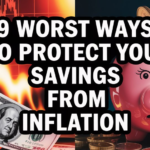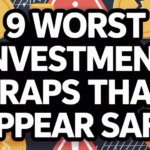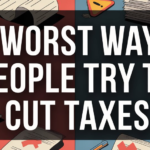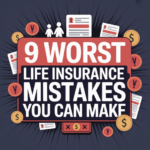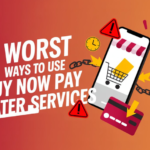Buying your first home is one of the most exciting milestones in life. But it also comes with confusion, paperwork, and dozens of financial questions. If you’re a first-time homebuyer in the U.S., you’ve probably wondered: How much house can I afford? Do I need 20% down? What type of loan is best for me?
In this detailed guide, we’ll answer the big questions were receiving from first home buyers, with real examples, simple calculations, and actionable tips. Whether you’re just starting to explore or already searching for listings, this blog will prepare you to make smart, informed decisions.
The Big Questions Were Receiving from First Home Buyers
1. Am I Financially Ready to Buy a House?
Being “ready” isn’t only about wanting a house—it’s about financial stability. Ask yourself:
- Is my credit score at least 620 (for conventional loans) or 580 (for FHA loans)?
- Do I have enough savings for a down payment and closing costs?
- Can I cover monthly mortgage payments plus unexpected expenses?
💡 Pro Tip: Experts recommend saving at least 1% of your home’s price annually for maintenance.
Example Calculation:
If you purchase a $300,000 home → Maintenance fund = $3,000 per year (or $250 per month).
2. How Much House Can I Afford?
Lenders typically use two affordability rules:
- 28% Rule: Your mortgage payment (including taxes & insurance) should not exceed 28% of gross monthly income.
- 36% Rule: All debts (mortgage, car loans, credit cards) should not exceed 36% of gross monthly income.
Example:
- Monthly income = $6,000
- Max mortgage payment (28%) = $1,680
- Max total debt (36%) = $2,160
This means you should target homes in the $200,000–$250,000 range, depending on loan type, interest rate, and taxes.
3. Do I Really Need a 20% Down Payment?
The 20% rule helps avoid Private Mortgage Insurance (PMI), but it’s not mandatory.
- Conventional Loan: Minimum 3%–5% down (PMI required under 20%)
- FHA Loan: 3.5% down (with mortgage insurance)
- VA Loan: 0% down, no PMI (for veterans)
- USDA Loan: 0% down (for rural eligible areas)
Example: For a $300,000 home:
- 20% down = $60,000
- FHA loan, 3.5% down = $10,500
- VA/USDA loan = $0 down
So, while 20% is ideal, first-time buyers often start with less.
Also Read: First Home Buyer Journey: A Complete Guide with Examples
4. What Loan Options Should I Consider?
Choosing the right loan is crucial. Here are the most common:
- Conventional Loan: Best if you have strong credit (≥740) and can put 20% down.
- FHA Loan: Great for lower credit scores or smaller down payments.
- VA Loan: Exclusive to veterans and service members—no down payment required.
- USDA Loan: Perfect for buyers in rural areas.
📊 Fixed vs Adjustable Rate Mortgage (ARM):
- Fixed Rate = Stability. Payment never changes.
- ARM = Lower initial rate, but can increase later.
5. What’s the Difference Between Pre-Qualification and Pre-Approval?
- Pre-Qualification: An estimate based on self-reported financials. Not binding.
- Pre-Approval: A verified lender review with credit check and income documents. Stronger when making offers.
Tip: Always get pre-approved, not just pre-qualified, before house hunting. Sellers take you more seriously.
6. What Documents Do I Need?
Expect to provide:
- W-2s & Tax Returns (last 2 years)
- Pay Stubs (last 2–3 months)
- Bank Statements (last 60 days)
- ID and proof of assets
- Debt details (student loans, car loans, credit cards)
If you’re self-employed, lenders may also require business tax returns and profit-loss statements.
7. What Are Closing Costs?
Closing costs usually range from 2%–5% of the home price. They include:
- Appraisal fees
- Inspection fees
- Title insurance
- Attorney fees
- Escrow deposits
Example:
On a $300,000 home, closing costs = $6,000–$15,000.
Don’t forget to budget for moving expenses, furniture, appliances, and utility setup fees.
8. What Are the Hidden Costs First-Time Buyers Miss?
Beyond mortgage and closing costs, prepare for:
- Property taxes ($2,000–$6,000 annually depending on state/county)
- Homeowners insurance ($800–$2,000 per year)
- HOA fees (can be $50–$400 per month)
- Repairs and upgrades
💡 Tip: Always ask about HOA rules and community financial health before buying.
9. How Long Should I Plan to Stay in My First Home?
Buying is typically more cost-effective if you stay at least 5 years or more. This allows you to recover upfront costs and build equity.
If you plan to move in 2–3 years, renting may make more sense.
10. What Mistakes Should I Avoid During the Loan Process?
Avoid these deal-breaking mistakes before closing:
- Opening new credit cards or loans
- Large unexplained deposits or withdrawals
- Missing payments on current bills
- Quitting or changing jobs suddenly
Even small financial moves can delay or derail your mortgage approval.
11. How Can I Compete in a Hot Housing Market?
If demand is high, you can stand out by:
- Getting pre-approved early
- Offering a larger earnest money deposit
- Writing a personal letter to the seller
- Being flexible on closing dates
In competitive markets, being prepared financially and emotionally is half the battle.
12. A Complete Example: First-Time Buyer Scenario
Let’s put everything together with an example.
Income: $6,000 per month
Home Price: $300,000
Loan Type: FHA (3.5% down)
- Down Payment: $300,000 × 3.5% = $10,500
- Loan Amount: $289,500
- Monthly Principal & Interest (30 years, 4% rate): ≈ $1,381
- Taxes & Insurance Estimate: ≈ $350
- PMI (mortgage insurance): ≈ $100
✅ Total monthly housing cost ≈ $1,831
Now apply the 28% rule:
- $6,000 × 28% = $1,680 max recommended
- Here, $1,831 slightly exceeds budget → buyer may:
- Increase down payment (e.g., 10% = $30,000)
- Choose a cheaper home ($250,000)
- Explore a different loan option
- Increase down payment (e.g., 10% = $30,000)
This shows why affordability checks and planning are critical before making an offer.
Conclusion
Buying your first home can feel overwhelming, but asking the right questions makes the process manageable. By understanding affordability rules, loan types, down payments, and hidden costs, you’ll step into the journey prepared—not panicked.
Remember:
- Get pre-approved before house hunting.
- Budget beyond just mortgage—factor in taxes, insurance, HOA, and maintenance.
- Choose the right loan based on your credit and savings.
- Stay disciplined during the loan process to avoid delays.
Your first home purchase isn’t just about finding the right property—it’s about building long-term financial security. With this guide, you’re now ready to turn your dream into reality and step confidently into homeownership.


